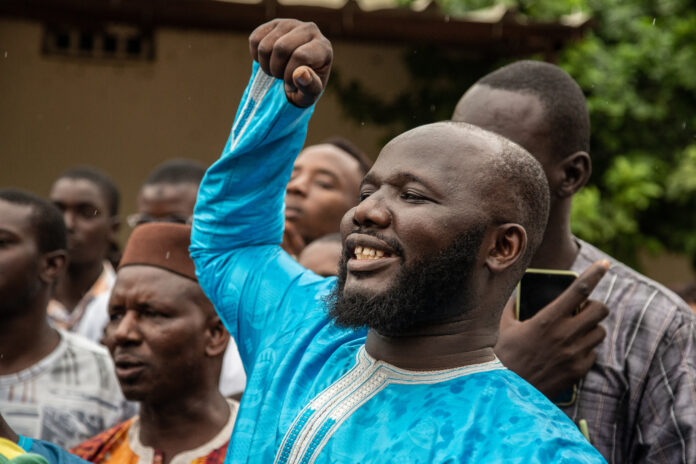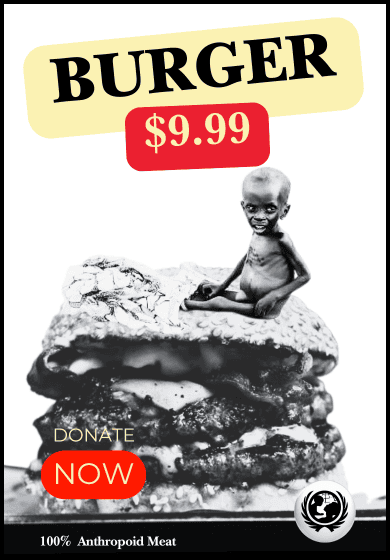[ad_1]
Thiès, Senegal – The grassroots movement against industrial fishmeal and fish oil in West Africa reached a new battleground today when a group of female fish processors, artisanal fishers and other inhabitants of the town of Cayar began legal proceedings against the fishmeal factory that they say has violated their right to a healthy environment by polluting the town’s air and its drinking water source.
The Taxawu Cayar Collective, which is leading the litigation, has also announced that the Spanish company Barna has sold its ownership of the Cayar factory to the local management team following a sustained campaign by the grassroots group.[1]
The news comes as Greenpeace Africa also reveals a United Nations FAO Working Group report, unreported until now, which warns that the main fish species targeted by the fishmeal industry are “overexploited” and that “the depletion of the stocks of coastal small pelagics pose a serious threat to food security” in West Africa.[2] Coastal community representatives and Greenpeace Africa have previously warned of the catastrophic impact that declining fish stocks are having on the livelihoods of the 825,000 people in Senegal who derive income from fisheries.[2]
Dozens of Cayar residents assembled at the High Court of Thiès on Thursday morning to show their support for the plaintiffs as they face its new ownership, Touba Protéine Marine, formerly Barna Senegal. But inside, the defence’s legal counsel asked the judge to adjourn the proceedings until 6 October and the request was immediately granted.
Maty Ndao, a fish processor from Cayar and member of the Taxawu Cayar Collective, said:
“It seems the factory’s owners need time to come up with their excuses. But we’re ready, and the photos and scientific evidence that we have will expose their law breaking. The fact that the old owners are running away after we protested against them has made us even more certain about our struggle. They pollute the land and the drinking water, and they destroy the sea. Our town is filled with the terrible noxious smell of rotting fish. Our children’s health and our ability to make a living are at stake. That’s why we will never give up.”
Maitre Bathily, the Collective’s lawyer, said:
“Environmental litigation like this hardly happens in Senegal, or indeed in most of Africa. So this will be a historic test for our institutions and our citizens’ freedom to exercise their rights. But we believe they will prove strong. The factory has repeatedly broken environmental codes, and the environmental impact assessment conducted before it opened clearly had enormous flaws. It should be an open and shut case.”
Dr Aliou Ba, Greenpeace Africa’s Senior Oceans Campaigner, said:
“Factories like Cayar’s can afford to take our fish, and sell it to be animal feed in other countries. So they’re driving up prices, forcing workers in Senegal out of business, and depriving families here of healthy, affordable and traditional food. It’s a system that’s rigged against normal people in Africa, in favour of big business – and the fishmeal factory is collaborating with it. But the community here is going to shut them down.”
Greenpeace Africa is demanding:
- West African governments phase out any fishmeal and fish oil production using fish fit for human consumption, based on its negative environmental, social and economic impacts,
- West African governments grant women fish processors and artisanal fishermen a legal and formal status, opening access to labour rights and benefits, such as social security and consultation rights in local fisheries management,
- Companies and end markets stop trading fishmeal and fish oil produced using fish fit for human consumption from the West African region,
- All states involved in fisheries in the region establish an effective regional management regime – particularly for the exploitation of shared stocks, such as small pelagic fish – as required under international law, relevant national laws, fisheries policies, and other instruments.
ENDS
Photo and Video available via the Greenpeace Media Library, including:
- Photos of events outside the High Court this morning,
- Video clips of events outside the High Court,
- Audio interviews in French, Wolof and English with fish processor Maty Ndao and lawyer Maitre Bathily,
- Video clips showing trucks from Cayar’s fishmeal factory pouring waste into Cayar’s Lake Mbawane. and video drone footage of the factory.
Notes to editors
[1] https://www.fao.org/3/cb9193en/cb9193en.pdf
[2] https://pubs.iied.org/16655iied
Contacts
For West African outlets:
Amagor Robert Niang, Communications Officer, Greenpeace Africa, aniang@greenpeace.org, +221771834049
For other outlets:
Richard Sayeed, International Communications Coordinator, Greenpeace Africa, [email protected]
Greenpeace Africa Press Desk, [email protected]
Greenpeace International Press Desk: [email protected], +31 (0) 20 718 2470 (available 24 hours)
Follow @greenpeacepress on Twitter for our latest international press releases
[ad_2]
Source link



